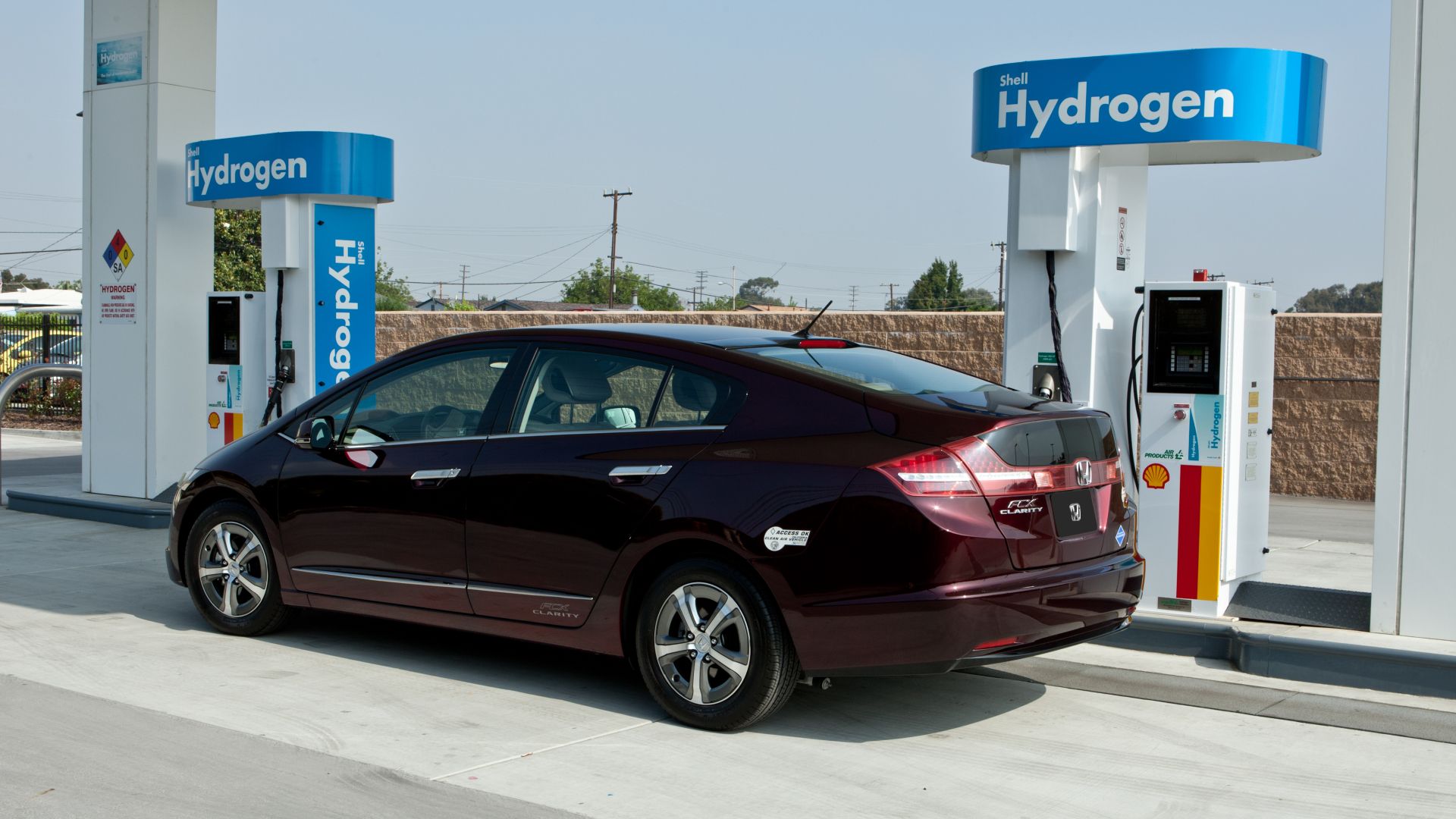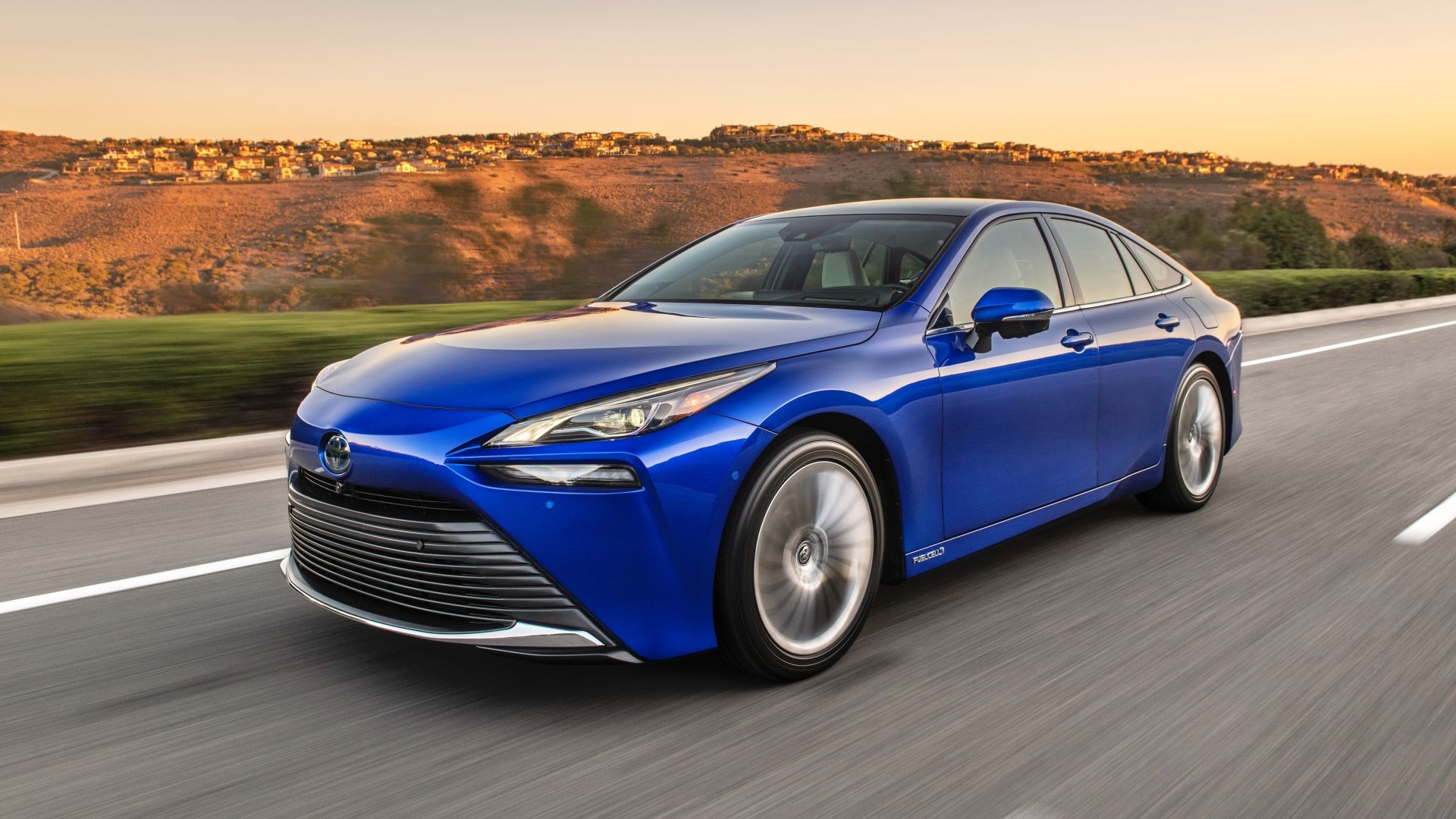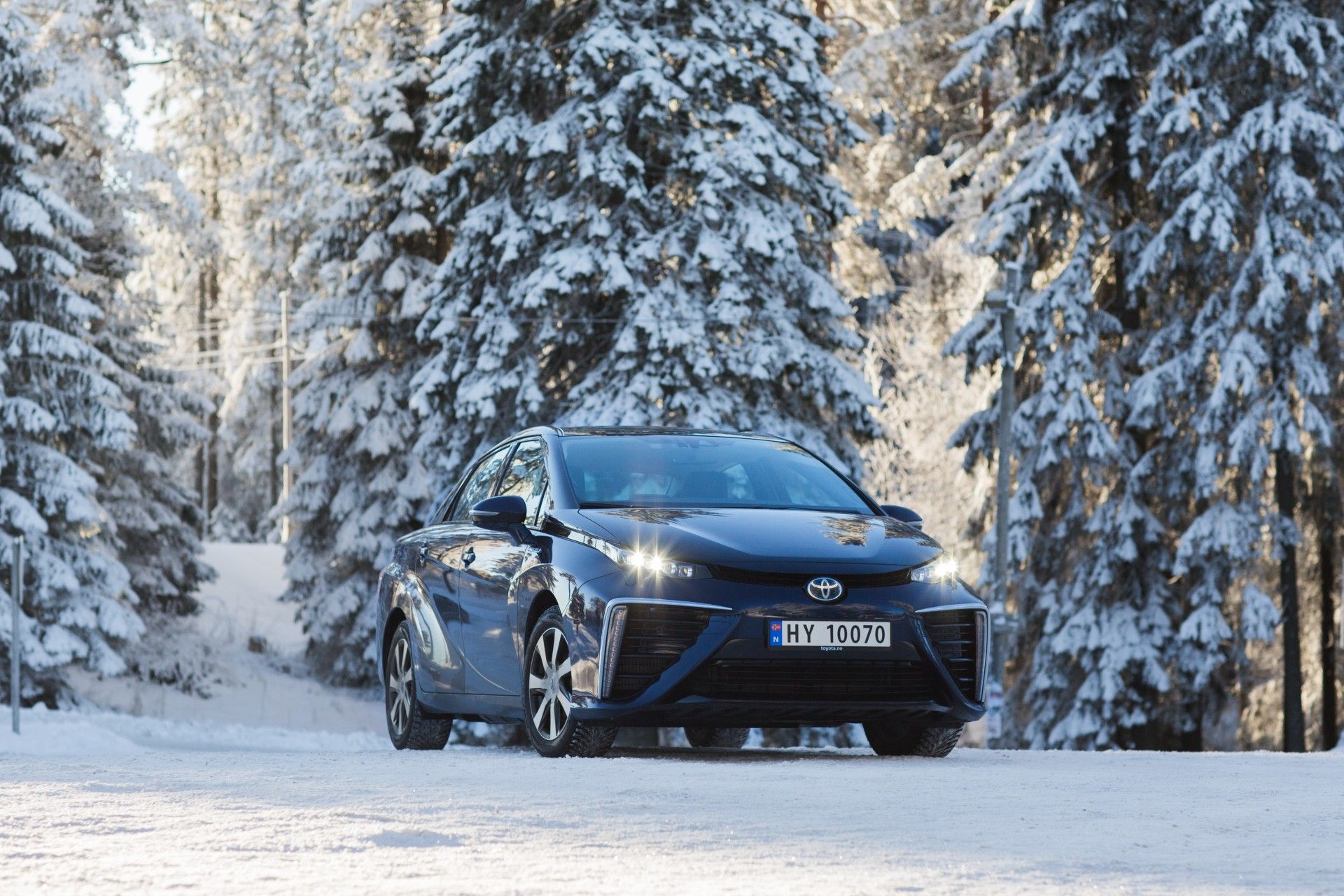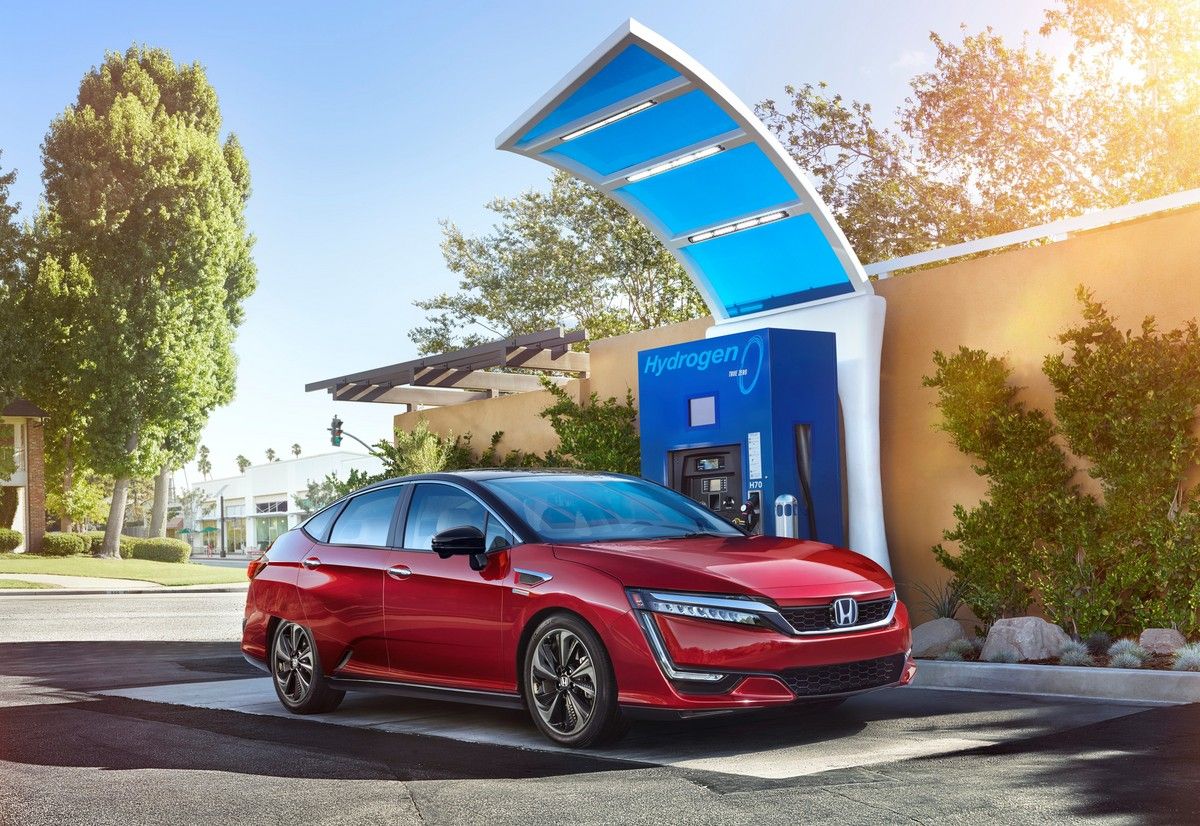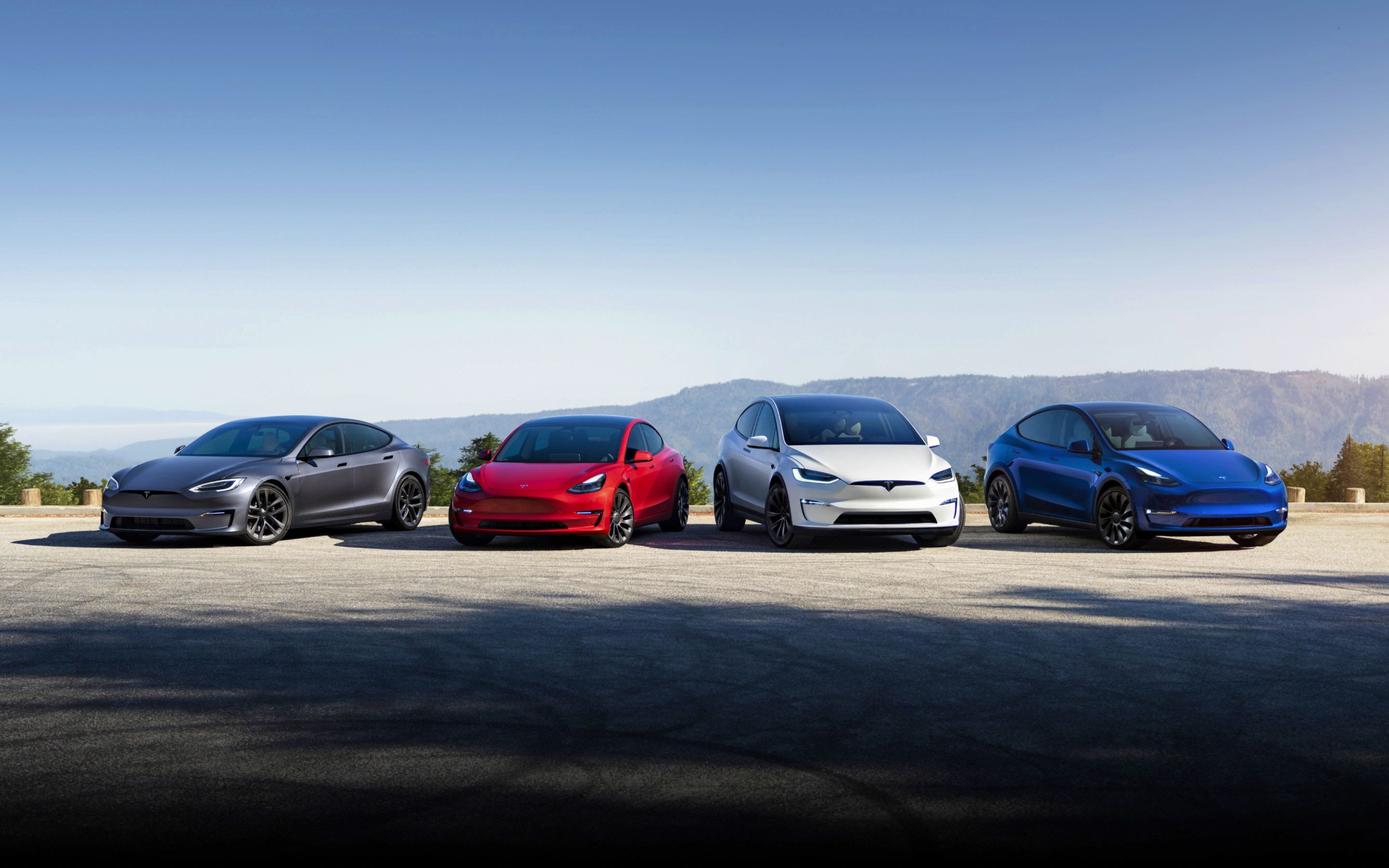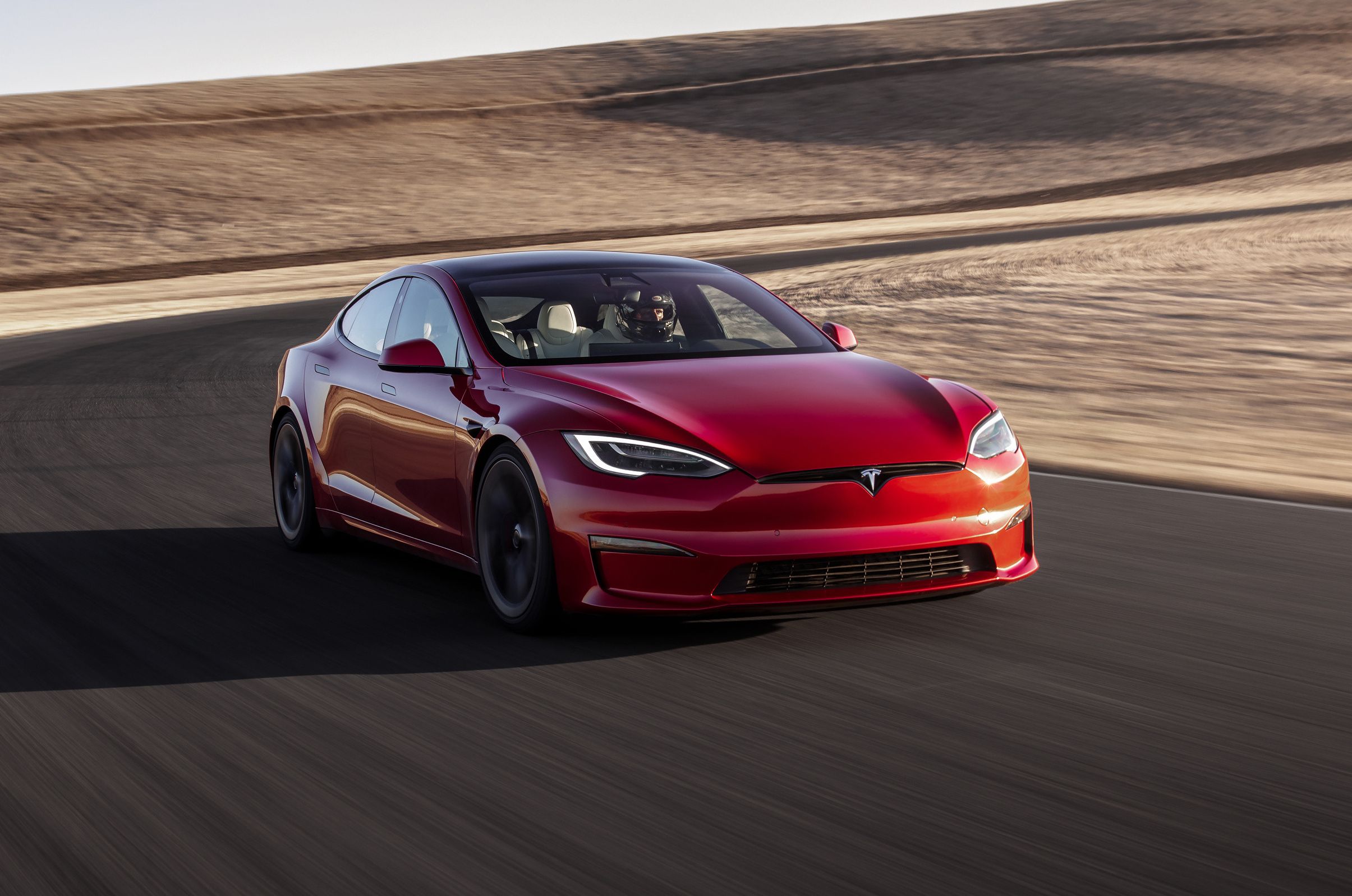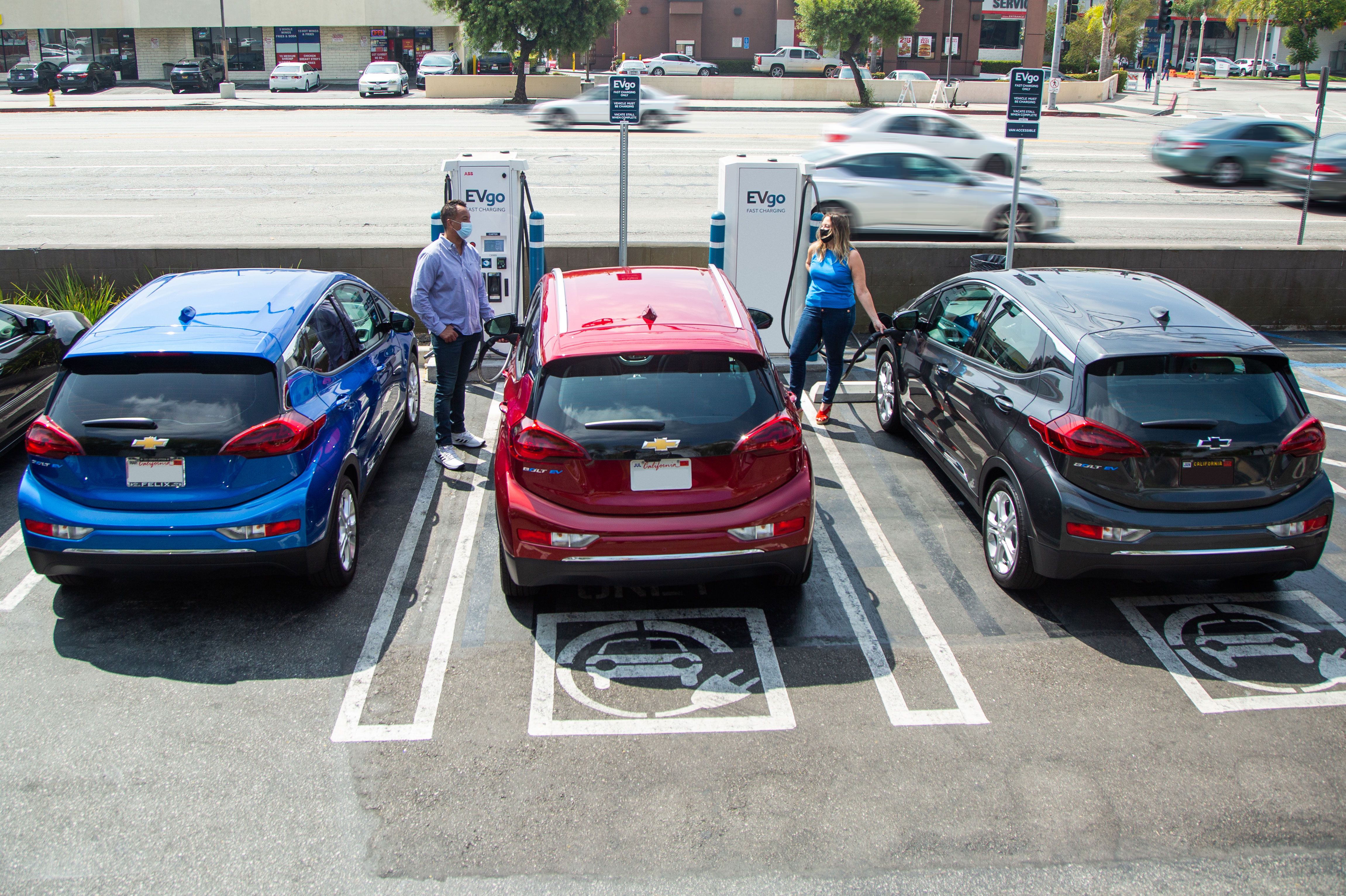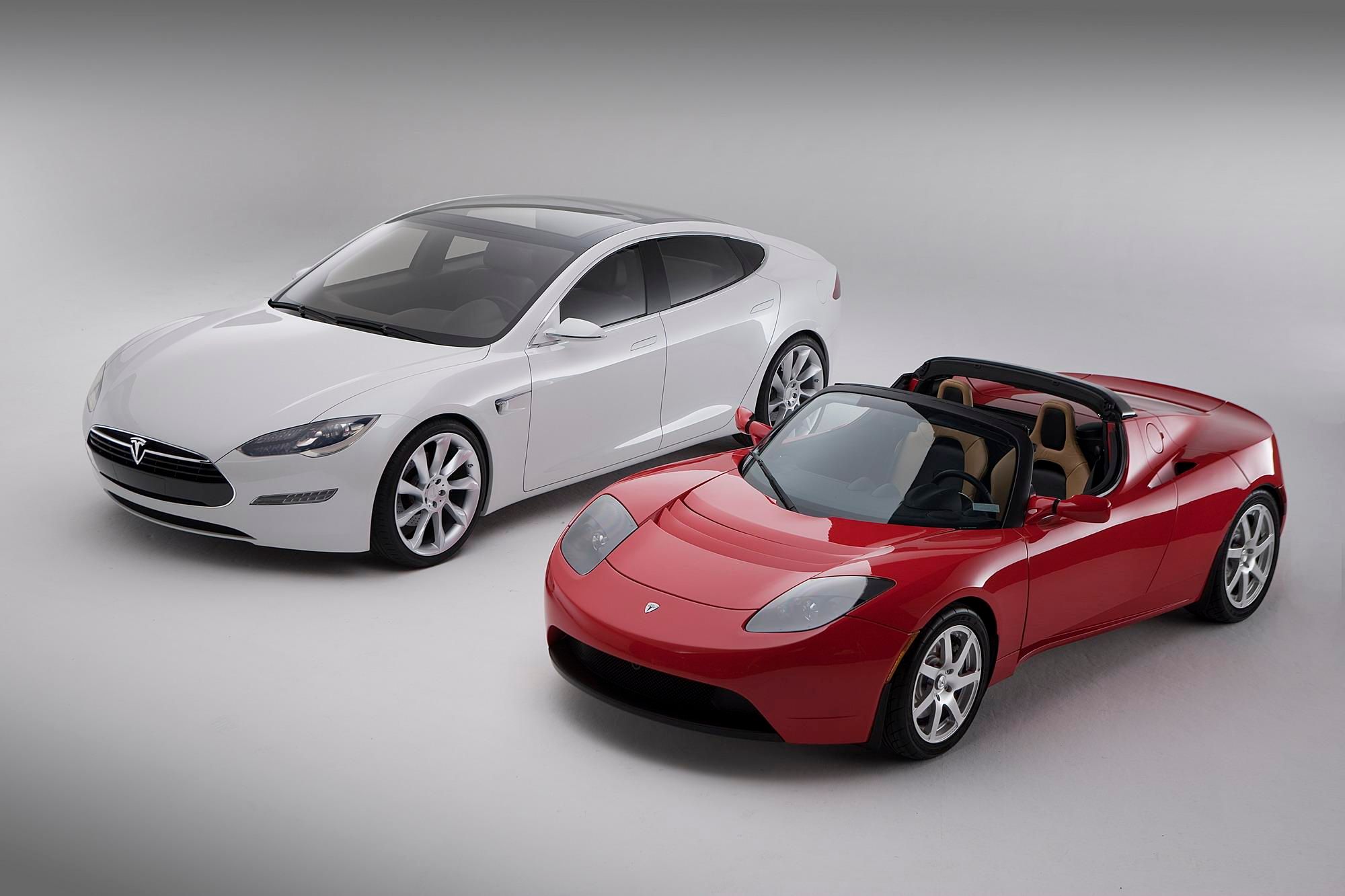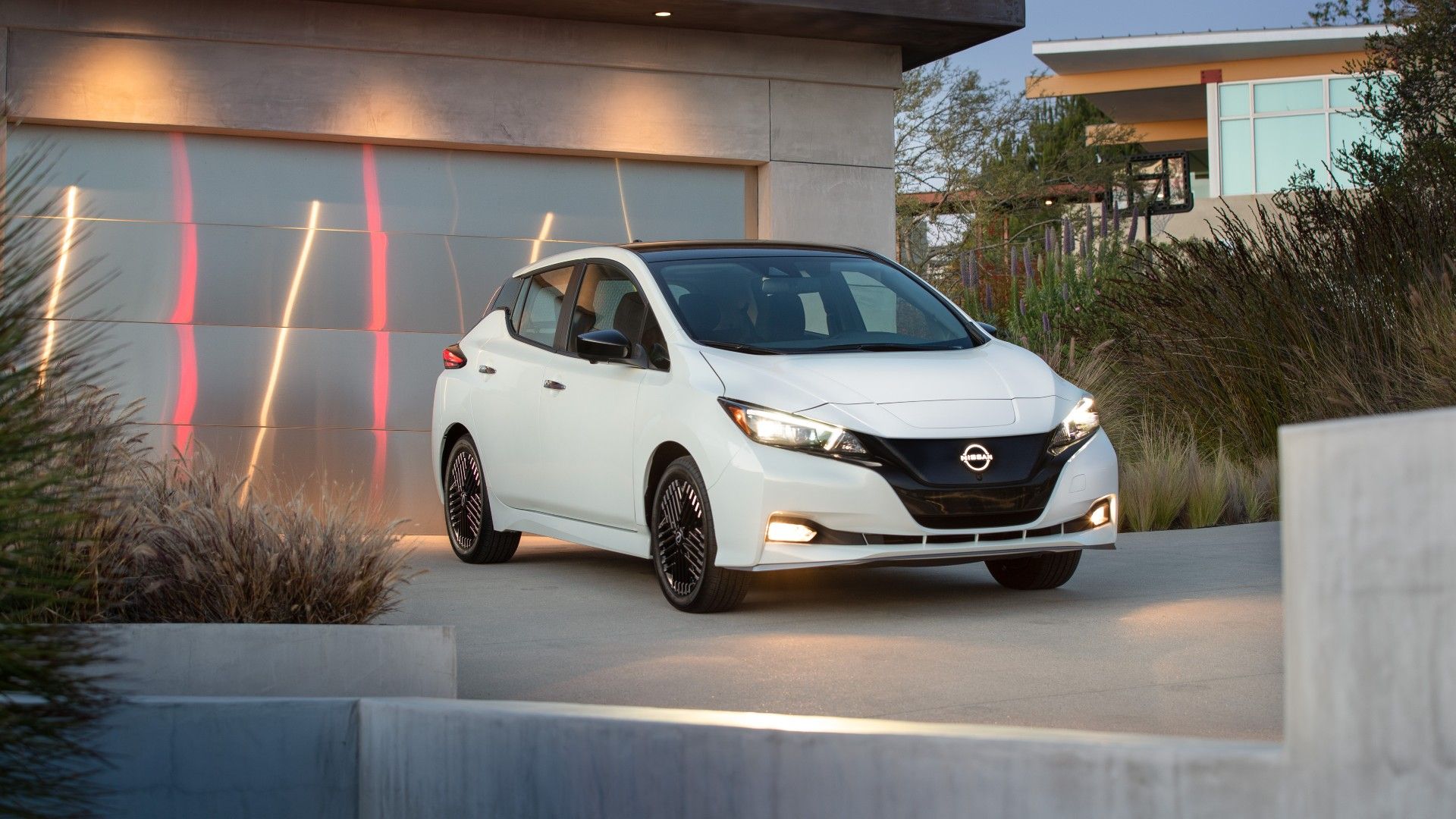In a world where the increasing number of vehicles is a major concern, with projections of a 60 percent increase in carbon emissions due to two billion cars on the road by 2050, there has been a significant shift towards more sustainable and environmentally friendly modes of transportation. The pressing need to reduce the carbon footprint of vehicles has led to the rise of two prominent contenders: hydrogen cars and electric cars. Interestingly, the history of hydrogen cars can be traced back to the early 19th century when Swiss engineer Francois Isaac de Rivaz created the first hydrogen fuel cell engine. Despite its long history, the technology has only recently advanced enough to make hydrogen cars accessible to people (hello, late bloomer). On the other hand, electric cars have a similar inception story, but they have rapidly gained popularity as a viable alternative to traditional gasoline-powered vehicles (tipping out hats to Tesla).
In fact, EV technology became a knight in shining armor when the world desperately wanted to cut down carbon emissions, especially since the auto industry was one of the top targets. That being said, there is no denying both hydrogen cars and electric cars offer promising solutions for a more sustainable future, and we will likely see continued growth in both technologies. It is worth noting that established automakers are exploring both electric and hydrogen technologies, as each boasts unique benefits, drawbacks, and defining features. But since we're mere humans, there's this relentless curiosity to find which of these environmentally sustainable transportation options comes out on top? Here are 5 reasons why hydrogen cars are better, followed by 5 reasons why battery-electric vehicles are a better choice.
10 The Enticingly Longer Driving Range of Hydrogen Cars
As the world seeks alternative vehicles to compete with traditional fossil-fuel-powered vehicles, hydrogen cars make a strong case with their impressive range. We have the prime example of the 2021 Toyota Mirai setting a Guinness World Record by traveling 845 miles on a single tank of hydrogen. Additionally, the 2022 Hyundai Nexo SUV offers a driving range of 380 miles per tank, making it a strong competitor to the Tesla Model S, one of the most popular EVs with an EPA range of 405 miles. Since most EVs have an average range of 200 to 300 miles (with the deservedly-hyped exception to the 2022 Lucid Aid model boasting a range of over 500 miles), it's understandable why average car owners, including die-hard EV fans, would be impressed by the driving range of hydrogen vehicles.
9 Refueling A Hydrogen Car Is Fast And Easy
Now that we've touched upon the impressive range edge of hydrogen cars, let's not forget the all-important refueling time factor. If you're tired of waiting for your electric vehicle to juice up like a sleepy teenager on a weekend morning, you'll be pleased to know that hydrogen cars offer a quick speed of refueling similar to traditional gasoline or diesel vehicles. No more counting sheep while you wait for your battery to reach 100 percent because you can top up the hydrogen car within three to five minutes. On the other hand, charging an electric vehicle can be a real test of patience. If you're lucky enough to have a high-powered DC fast charger, you might only have to wait 30 minutes or so. But if you're stuck with a 7kW charging point, it could take a whopping eight hours to charge your average 60 kWH electric vehicle fully.
8 The Consistent Cold-Weather Performance Of Hydrogen Cars
Now here's a point that could hit EV owners in cold places where it hurts the most (and might encourage some people to consider switching to hydrogen cars). You see, electric vehicles are no stranger to reductions in range during cold weather. It is because lithium-ion batteries perform sluggishly whenever the temperature drops. We get that range reduction in cold weather is inevitable, but it has taken some time for owners to become aware of the extent to which low temperatures can impact their vehicle's range. This has been partly due to somewhat overstated claims made by some EV manufacturers. In fact, Tesla has been fined $2.2 million for exaggerating the range of its vehicles on a single charge. Cold climate can be a big deterrent to EV ownership. According to one study, cold weather can cut electric car range by over 40 percent, although range reduction varies between manufacturers. In contrast, hydrogen cars are built to perform consistently in all weather conditions, making them a reliable and worry-free option. With a hydrogen vehicle, you won't have to experience the frustration of the common car-not-starting problem or the disappointment of a reduced range.
7 The Promising Potential of Hydrogen Cars In Reducing Pollution
Wait, what? From a sustainability point of view, hydrogen cars and electric cars are touted as eco-friendly options. But then, why are we saying that hydrogen cars might be the right way forward? Okay, hear us out. Hydrogen, in all its abundant and renewable glory, creates water when burned and leaves no environmental footprint. Although hydrogen fuel cell technology and battery-powered EVs are both great at reducing pollution, the important point to consider is that hydrogen has versatility on its side as it can be produced from various sources and methods (as a byproduct of many industrial processes or even electrolysis). On the other hand, EVs rely solely on electricity from the grid, which is often generated from non-renewable sources like coal, oil, and natural gas, leading to significant emissions. Moreover, the rapid increase in the number of EVs could place significant strain on existing electrical grids, leading to potential power shortages and the need for upgrading or expanding infrastructure.
Let's not forget that the extraction of minerals like cobalt, lithium, and nickel, which are critical components in producing electric vehicle batteries, can significantly impact the environment. Mining these minerals often involves using toxic chemicals and large amounts of water, which can lead to the contamination of soil and water sources. And that's not it. The end-of-life disposal of lithium-ion batteries in EVs can release harmful toxins and heavy metals if not properly recycled.
6 Hydrogen Cars Can Adapt To Existing Infrastructure Of Fuel Stations
The electric vehicle market is booming, with Tesla and other EV network companies investing heavily in fast-charging stations. With predictions of the electric vehicle charging station market size to reach USD 111.90 billion by 2028, the electric revolution is showing no signs of slowing down. However, experts predict that we will need 10 times as many chargers by 2040 to meet the growing demand, which could put a strain on the electrical infrastructure and lead to increased emissions. This is where hydrogen cars can make a big impact. Rather than being seen as a competitor, hydrogen cars can be viewed as companions that can relieve major burdens on the increasingly-unreliable electrical infrastructure. Fortunately, the existing fossil fuel industry has already laid the groundwork by setting up over 145,000 gasoline stations, which could make adding hydrogen stations to the existing network easier and faster. Of course, there will be a need to build new hydrogen fueling stations, but it won't be as much as new EV charging stations. We feel that hydrogen cars have an advantage over EVs because the cost of setting up hydrogen fueling stations is lower, and modifying existing gasoline stations makes them easily accessible. Overcoming this obstacle could lead to an exponential increase in buyers of hydrogen cars. Exciting times are ahead!
5 An Array Of 'Electrifying' EV Options
While a handful of major car manufacturers like Toyota, Honda, Hyundai, and BMW are focusing extensively on hydrogen cars in a bid to lead the change in the automotive industry, there are premium brands like Tesla, Porsche, Lamborghini, Ford, GM, Stellantis, and many others fully charged and ready to rock the electric vehicle scene. What this means is that the EV market takes a substantial lead over hydrogen cars by offering a wide variety of options, catering to a range of preferences and needs. There are stylish sports cars like the Tesla Roadster and Porsche Taycan, efficient city cars like the Nissan Leaf and BMW i3, and spacious family-friendly SUVs like the Tesla Model X and Hyundai Ioniq 5. On the other hand, if you're looking for a hydrogen vehicle, your options are limited to a small pool of models.
4 The Riveting Performance Of Electric Vehicles
While hydrogen cars may have a futuristic ring to them, electric vehicles are truly changing the game with their enthralling high performance. With their instant torque, EVs deliver a potent performance that not only rivals traditional fuel-powered vehicles but also surpasses hydrogen cars. Take the Tesla Model S Plaid, for example. This speed demon can go from 0 to 60 miles in just 1.9 seconds, making it the quickest production car ever. And it's not just a one-off example since many other high-performance EVs are hitting the market. Moreover, ever-increasing battery technology advancements have allowed for EVs to have longer driving ranges, higher energy efficiency, and improved performance. And sure, there may be some hydrogen-powered concepts or limited-edition cars that can keep up, but in the consumer market, a genuinely powerful hydrogen vehicle is yet to be seen.
3 The Ever-Expanding Network Of EV Charging Stations
In the early days of EVs, locating a charging station was like finding a needle in a haystack. But now, with the rapid growth of the EV market and over 1.7 million EVs in the U.S., charging stations can be found in shopping centers, offices, and even on the side of the road. In fact, over 30 EV charging network companies are running over 50,000 EV stations across the U.S. Tesla alone has over 1,400 Supercharger stations with over 7,000 chargers. In comparison, hydrogen refueling stations are still scarce and mostly found in California. While hydrogen refueling stations offer the advantage of faster refueling times, they are still far less common than EV charging stations. Furthermore, the infrastructure for producing and distributing hydrogen fuel is still in its infancy, making it difficult for hydrogen vehicles to gain widespread adoption. For the time being, it appears that electric vehicles will maintain their dominance over hydrogen cars.
2 The Tried-And-Tested And Advanced EV Technology
When it comes to choosing a sustainable mode of transportation, most people will opt for a proven success. EVs have been around for over a century, and the advancements made in that time have made them a more reliable and eco-friendly choice. From Tesla's Model S, known for its sleek design and long-range capabilities, to Chevrolet's Bolt, which boasts a more affordable price point and fast charging times, modern EVs offer a multitude of options for consumers. With improved battery technology, shorter charging times, better range, and a growing network of charging stations, EVs are becoming a more practical and attractive option for daily use. On the other hand, the technology behind hydrogen cars is still in its early stages, and its widespread acceptance is still in question. This is also due to several incidents that have raised concerns about its reliability. For example, a chemical plant producing hydrogen in Santa Clara exploded in 2019, leaving many hydrogen car users in California without fuel. Another incident involving a hydrogen refueling station catching fire in Sandvika, Norway, further fueled these concerns. Until hydrogen vehicles overcome barriers like infrastructure, storage, and public awareness, it will take some time before these sustainable vehicles become more mainstream.
1 Electric Cars Are More Affordable Than Hydrogen Cars
With affordable electric car options like the Chevrolet Bolt, Nissan Leaf, Mazda MX-30, and Hyundai Kona Electric, EVs are becoming increasingly accessible to the masses. On the contrary, hydrogen-powered cars such as the Toyota Mirai and Hyundai Nexo come with a hefty price tag (well over $50,000) due to their complex technology. Refueling cost is another factor to consider. EVs offer a convenient and cost-effective solution with charging stations available both at home and in public, costing only a minimal amount (the average cost of charging an EV at a commercial charge can cost between $10 and $30). On the other hand, refueling a hydrogen car can be much more expensive, with costs often being four times more than recharging an electric vehicle. Additionally, the limited availability of hydrogen refueling stations makes hydrogen cars a less attractive option for cost-conscious consumers. Nevertheless, it is imperative to note that the cost of hydrogen fuel cell vehicles is coming down (slowly but surely), and prices are expected to continue to fall as the technology becomes more widespread.

